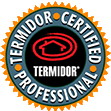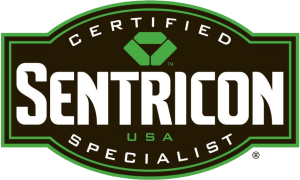Welcome to our comprehensive guide to termite control in Waco, Texas. We understand the importance of protecting your property from the destructive nature of termites. In this article, we will provide you with valuable insights and effective strategies to address termite infestations. Our aim is to help you outrank other websites and become a trusted source of information for anyone seeking solutions to termite-related issues in the Waco area.
Understanding Termites
Before diving into termite control methods, let’s gain a better understanding of termites themselves. Termites are social insects that live in colonies and feed on cellulose-rich materials such as wood, paper, and plants. They play an important ecological role in breaking down dead plant material, but when they invade our homes and structures, they become a significant problem.
There are three main types of termites commonly found in Waco: subterranean termites, drywood termites, and dampwood termites. Each type has unique characteristics, behaviors, and preferences in terms of nesting and food sources.
- Subterranean Termites: These termites build their nests in the soil and require contact with the ground for moisture. They construct mud tubes to protect themselves while foraging for food. Subterranean termites are responsible for the majority of termite damage in Waco.
- Drywood Termites: Unlike subterranean termites, drywood termites do not require contact with the soil. They infest dry wood and can be found in furniture, structural timber, and wooden fixtures. Their colonies are typically smaller than subterranean termites.
- Dampwood Termites: Dampwood termites thrive in areas with high moisture content. They infest damp or decaying wood, such as logs, stumps, and structural timber that has been exposed to water damage. Dampwood termites are less common but can still cause significant damage.
Signs of Termite Infestation
It is crucial to be able to identify the signs of termite infestation early on to minimize potential damage. Here are some common indicators that termites may be present:
- Swarms: Termite swarms are reproductive individuals flying in groups, often mistaken for flying ants. If you notice swarms around your property, it’s a clear sign of a termite infestation.
- Mud Tubes: Subterranean termites construct mud tubes, usually along the foundation of structures or on walls. These tubes serve as protective tunnels and allow termites to travel between their nests and food sources.
- Wood Damage: Termites hollow out wood, leaving behind long grooves or tunnels. Tap or press on wooden surfaces to check for any hollow sounds, which may indicate termite activity.
- Discarded Wings: After swarming, termites shed their wings. Piles of discarded wings near windows, doorways, or light sources could indicate the presence of termites.
- Frass: Drywood termites push their fecal pellets out of their galleries, leaving behind small piles of wood-colored pellets. These pellets can often be found near infested wood or in areas with termite activity.
Termite Control Strategies
Now that we have a better understanding of termites and their signs, let’s explore effective termite control strategies to protect your property in Waco.
1. Prevention is Key
Taking proactive measures to prevent termite infestations is crucial. Here are some preventive steps you can implement:
- Remove Wood-to-Soil Contact: Ensure that wooden structures, such as decks and fences, do not have direct contact with the soil. Use concrete or metal barriers
- Regular Inspections: Schedule regular termite inspections by a professional pest control company. They can identify early signs of termite activity and implement preventive measures.
- Address Moisture Issues: Termites thrive in moist environments. Repair any leaks, ensure proper drainage, and address areas with excessive moisture around your property.
- Seal Entry Points: Seal any cracks, gaps, or openings in your home’s foundation, walls, and roof to prevent termites from entering.
2. Termite Treatment Options
In the event of a termite infestation, it is essential to choose the right treatment method. Here are some commonly used termite control options:
- Liquid Termiticides: Liquid termiticides are applied to the soil surrounding your property to create a barrier against termites. This method effectively eliminates subterranean termites and helps protect your structure.
- Termite Baits: Termite bait stations contain slow-acting toxins that are ingested by termites and taken back to their colonies, effectively eliminating the entire population. This method is particularly useful for subterranean termites.
- Fumigation: Fumigation is a more extensive treatment option used for severe infestations. It involves tenting your entire property and introducing a fumigant gas that penetrates the structure, eliminating termites in all areas.
- Wood Treatments: Wood treatments involve applying termiticides directly to infested wood or using treated wood during construction or repairs to deter termite infestations.
3. Professional Termite Control Services
While some termite control methods can be implemented by homeowners, it is often beneficial to seek the assistance of professional pest control services. These experts have the knowledge, experience, and specialized tools to effectively identify, treat, and prevent termite infestations.
Professional termite control services offer:
- Thorough Inspections: Pest control experts conduct comprehensive inspections to accurately assess the extent of termite activity and damage.
- Customized Treatment Plans: Based on the inspection findings, professionals develop customized treatment plans tailored to your specific infestation and property.
- Long-Term Monitoring: Pest control companies provide ongoing monitoring to ensure the effectiveness of treatments and detect any signs of termite reinfestation.
- Warranty and Insurance: Reputable pest control services often offer warranties and insurance coverage, providing you with added peace of mind.







